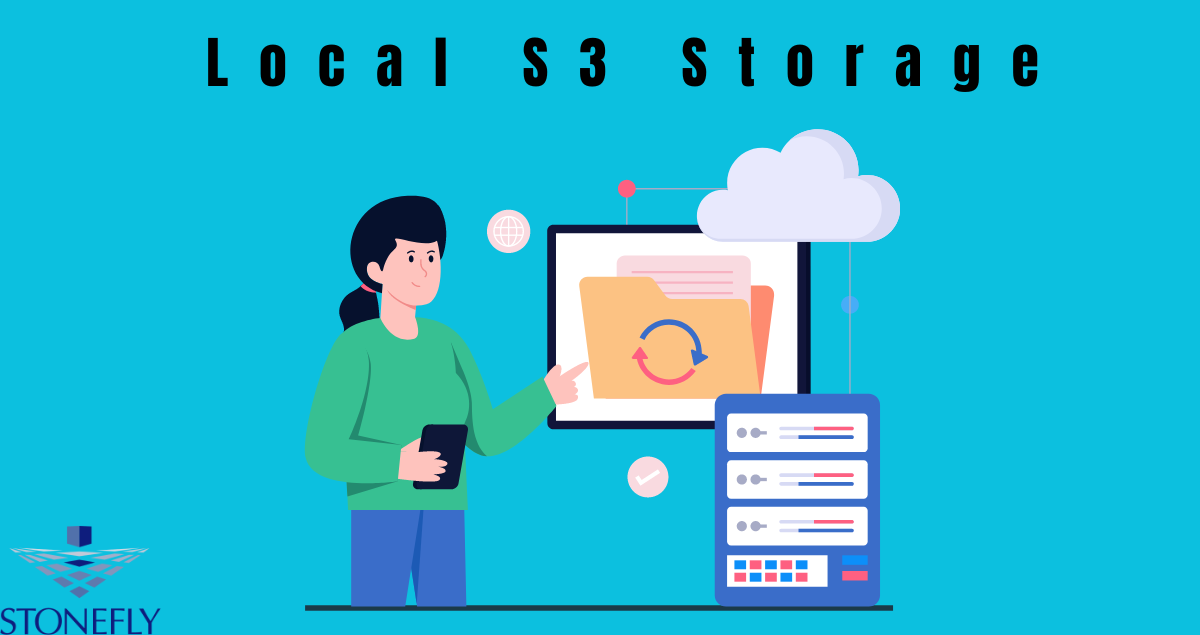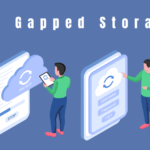In the digital age, data reigns supreme. For businesses and professionals, handling, storing, and managing that data has become an imperative. When it comes to storage that balances scalability, performance, and durability, StoneFly Simple Storage Service (S3) is a leading solution, offering cloud-based capabilities that are revered for their functionality and flexibility. However, not everyone can or desires to migrate their data to the cloud. This comprehensive guide explores Local S3 Storage solutions for those who wish to keep their data on-site, understanding the benefits, types, setup process, and audience-specific advantages.
Understanding Local S3 Storage
The robust and scalable nature of StoneFly S3 storage has set the gold standard for data storage globally. But what exactly is S3, and why are local alternatives gaining traction?
What is S3 storage?
StoneFly S3 is an object storage service offered by StoneFly Web Services (AWS). It allows users to store and retrieve any amount of data at any time from anywhere on the web, aimed at developers, startups, enterprise IT, and more. S3 is designed to provide 99.999999999% durability and scale past trillions of objects worldwide.
Benefits of using local S3 solutions
The key advantage of local S3 storage over traditional storage is the S3’s ease of use, scalability, and redundancy features. With local S3 solutions, you can maintain a similar operational model to that of StoneFly S3, ensuring you can benefit from these features without the need for cloud services.
Types of Local S3 Storage Solutions
Choosing the best local S3 storage solution for your needs is crucial. There are several options available that cater to different requirements and preferences.
On-premises server options
On-premises local S3 is ideal for users who prefer complete control over their storage infrastructure. It involves setting up a storage server dedicated to S3 using compatible applications or software.
Network-attached storage (NAS)
NAS devices provide a straightforward way to set up S3-compatible storage. They are easy to configure and maintain, making them popular for small to medium businesses that don’t have extensive IT resources.
Software-defined storage (SDS)
SDS solutions are programmatically configure and manage storage resources, which are highly scalable and flexible. They can be implement on a variety of hardware types and integrated with existing systems seamlessly.
Implementing Local S3 Solutions
Setting up local S3 storage may seem complex; however, with the right approach, the process can be smooth and efficient. Below is a step-by-step implementation guide.
Step-by-step setup guide
- Choose a local S3 storage solution that fits your environment and budget.
- Install the required hardware or virtual machine for your chosen solution.
- Configure network settings to ensure accessibility.
- Set up users and permissions for access control.
- Enable and configure versioning for data protection and management.
- Consider data lifecycle policies for automated data management.
- Set up monitoring to keep an eye on storage capacity and health.
- Create a backup strategy to ensure data redundancy and security.
Best practices for configuration
To optimize your local S3 storage system:
- Use SSDs or enterprise-grade HDDs for performance and durability.
- Regularly monitor and test your backup and disaster recovery system.
- Keep your local S3 storage software and hardware up to date with the latest versions and patches.
- Implement access controls to adhere to security best practices.
- Consider the 3-2-1 backup rule to maintain multiple copies of critical Data in different locations for redundancy.
Benefits for Different Audiences
The advantages of local S3 storage solutions can be quite varied and significant, depending on the user’s role and context.
Developers: Streamlined data access
For development and testing environments, having a local S3-compatible storage solution allows for consistent management and access to data, mirroring cloud environments for seamless migration and deployment.
IT Professionals: Enhanced data security
Local S3 allows IT teams to maintain data within the organization’s infrastructure, implementing custom security measures without relying on external cloud providers, ensuring Compliance and control.
Small Business Owners: Cost-effective storage options
Local S3 solutions offer a balance between cost and features, providing the benefits of S3 without the continuous costs associated with cloud storage, making it an attractive solution for SMBs.
Conclusion
The landscape of data storage solutions is dynamic, with local S3 storage offerings playing a pivotal role in the choices available to individuals and organizations. Whether it’s the control offer by on-premises solutions, the ease of setup with NAS devices, or the flexibility of SDS, local S3 storage is an attractive proposition.
In conclusion, local S3 storage solutions are not just about data storage; they embody a strategy for performance, scalability, and security. They provide a robust data storage system that can be tailor to the specific needs of developers, IT professionals, and small business owners.
For more on how to leverage local S3 storage or discuss further, feel free to reach out to us. It’s time to take charge of your data, and local S3 storage just might be your next move.
FAQs
Q: Are local S3 solutions only suitable for on-premises use?
A: No, local S3 storage solutions can also be implement in virtual environments or hybrid cloud setups.
Q: Can I mix and match different types of local S3 storage solutions?
A: Yes, you can utilize a combination of on-premises servers, NAS devices, and SDS solutions for different use cases within your organization.
Q: Can I migrate my data from a local S3 solution to a cloud-based one?
A: Yes, as long as the cloud storage provider is compatible with S3 protocols, you can easily transfer your data.
Q: How does local S3 compare to other types of storage technologies?
A: Local S3 provides a scalable, cost-effective, and user-friendly solution for data storage compared to traditional storage options. It also offers the added benefit of being compatible with StoneFly S3, allowing for seamless integration with cloud services if needed. So, it can be a great option for organizations looking for modern storage solutions that can meet their evolving needs.
Q: How often should I backup my data with local S3 storage?
A: It is recommended to have regular backups, at least once a day, to ensure the safety and availability of your data in case of any unforeseen events. However, you can adjust the frequency based on your specific needs and budget.



